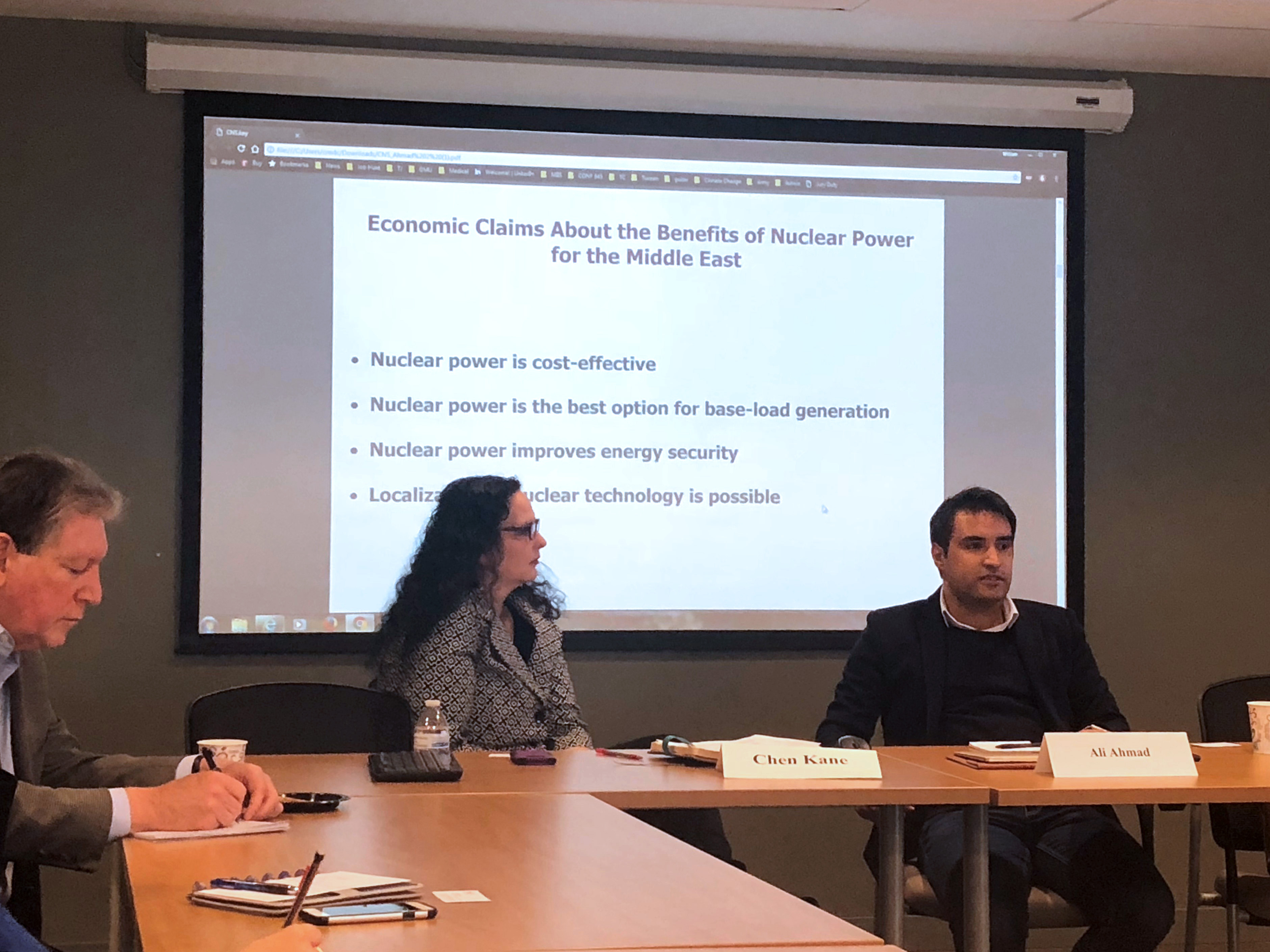February 6, 2018
On Tuesday, February 6, 2018, the James Martin Center for Nonproliferation Studies hosted a roundtable discussion examining the economic and security factors surrounding nuclear power in the Middle East. It featured a presentation by Dr. Ali Ahmad, Director of the Energy Policy and Security Program at the Issam Fares Institute for Public Policy and International Affairs at the American University of Beirut, and a member of CNS’s Middle East Next Generation of Arms Control Specialists (MENACS). Dr. Chen Kane, CNS Director of the Middle East Nonproliferation Program, moderated the event.

Dr. Ahmad began his presentation by providing the official reasoning and main factors driving the regional push for nuclear power, before moving onto an in-depth analysis on the economic feasibility of nuclear versus renewable energy. His research shows quantitatively that nuclear power is the riskiest and costliest alternative energy source for the region, especially when compared to increasingly cheaper solar, wind, and energy-storage technologies, as well as the increased availability of natural gas. Other than citing the large capital and construction price tags associated with nuclear energy, Dr. Ahmad added that regional political instability, lack of indigenous capabilities, and an uncertain investment environment remain the main economic inhibitors of an efficient and financially feasible nuclear program in the Middle East.
Dr. Ahmad’s presentation then touched on the plethora of security challenges facing nuclear aspirants in the region. Most importantly for nonproliferation, the ubiquitous threat of terrorism and non-state actors hangs over any plans to build reactors in the region, as evidenced by the Houthis’ alleged missile launch targeting the UAE’s Barakah reactor. Dr. Ahmad also stressed that regime sustainability cannot be guaranteed for most nuclear aspirants in the region, raising big risks and questions for any investor or government looking to support a Middle Eastern nuclear-power plan.
